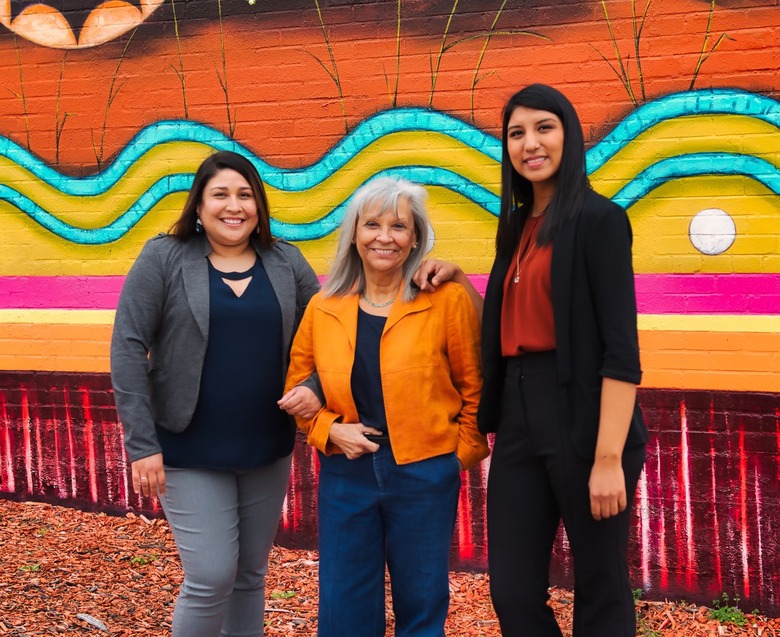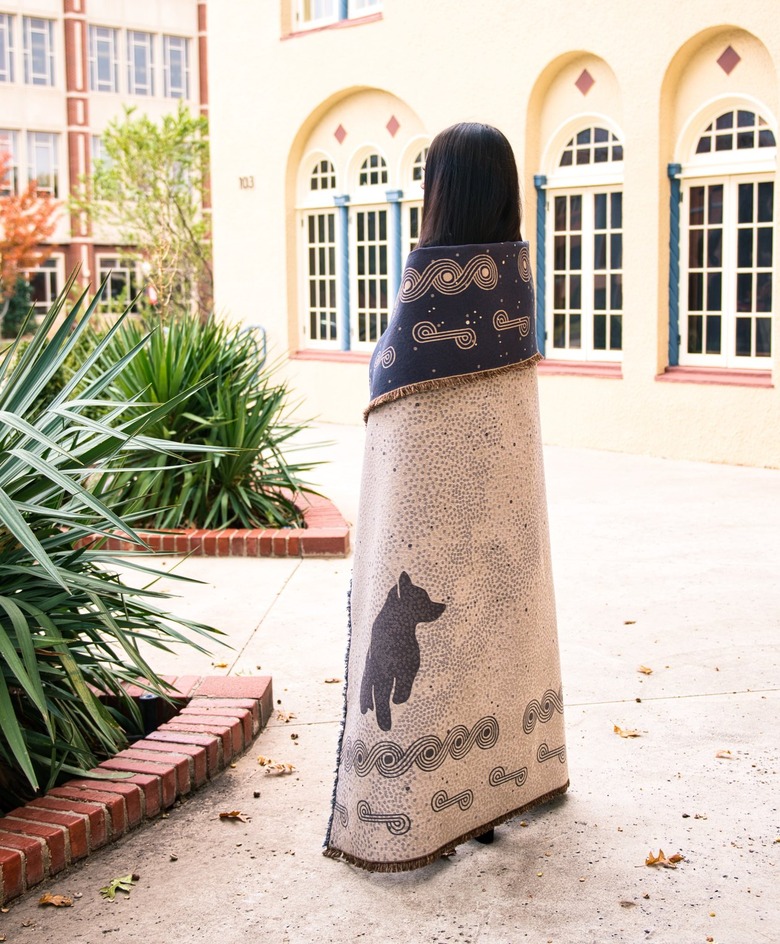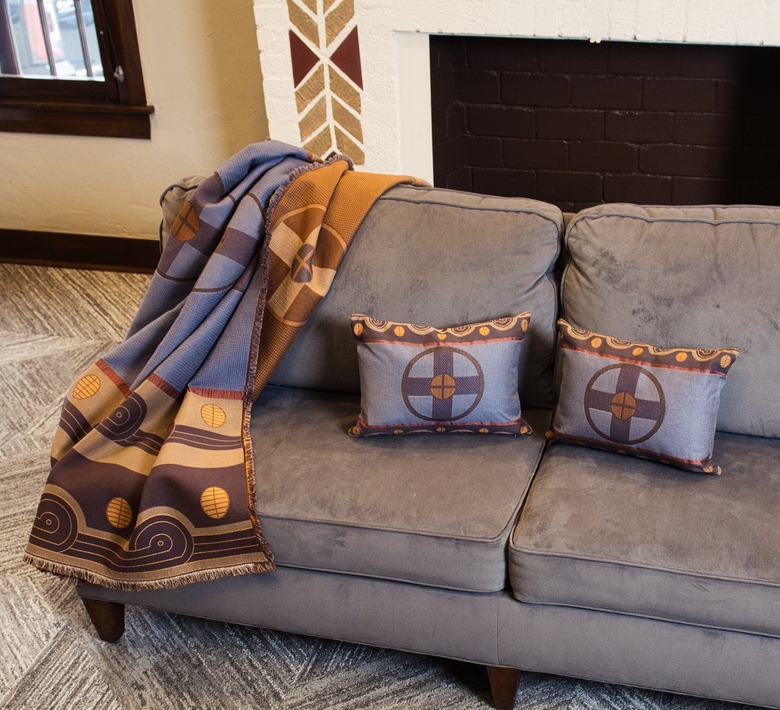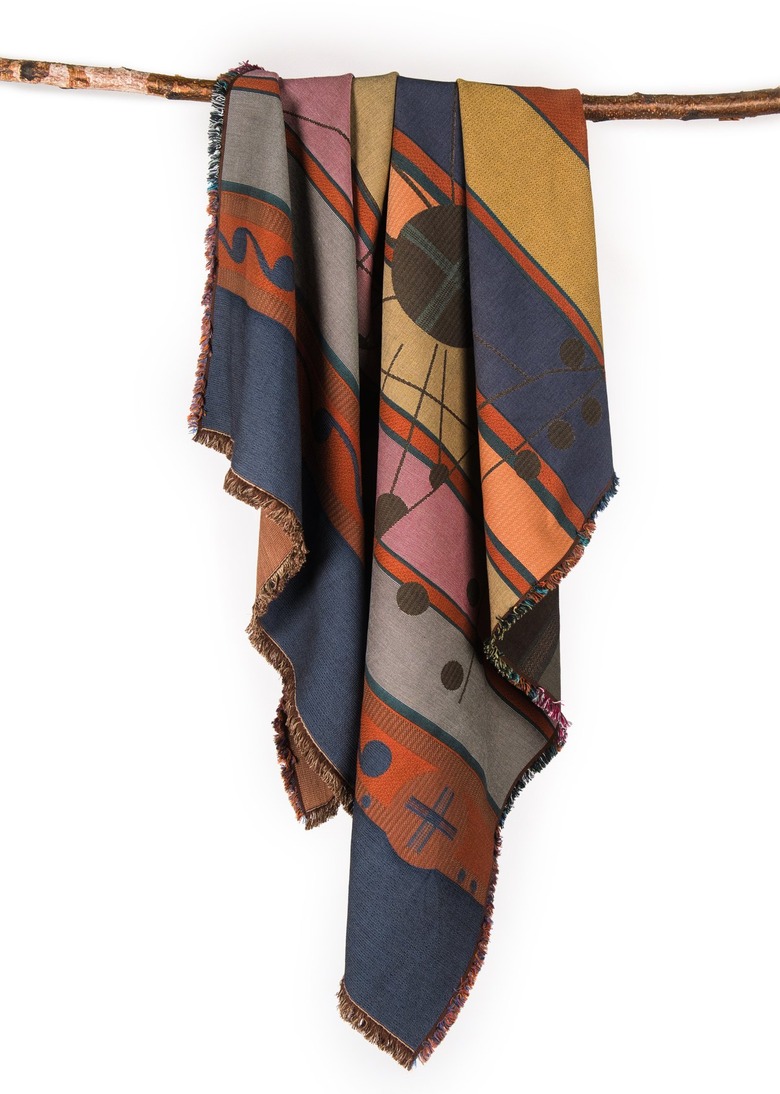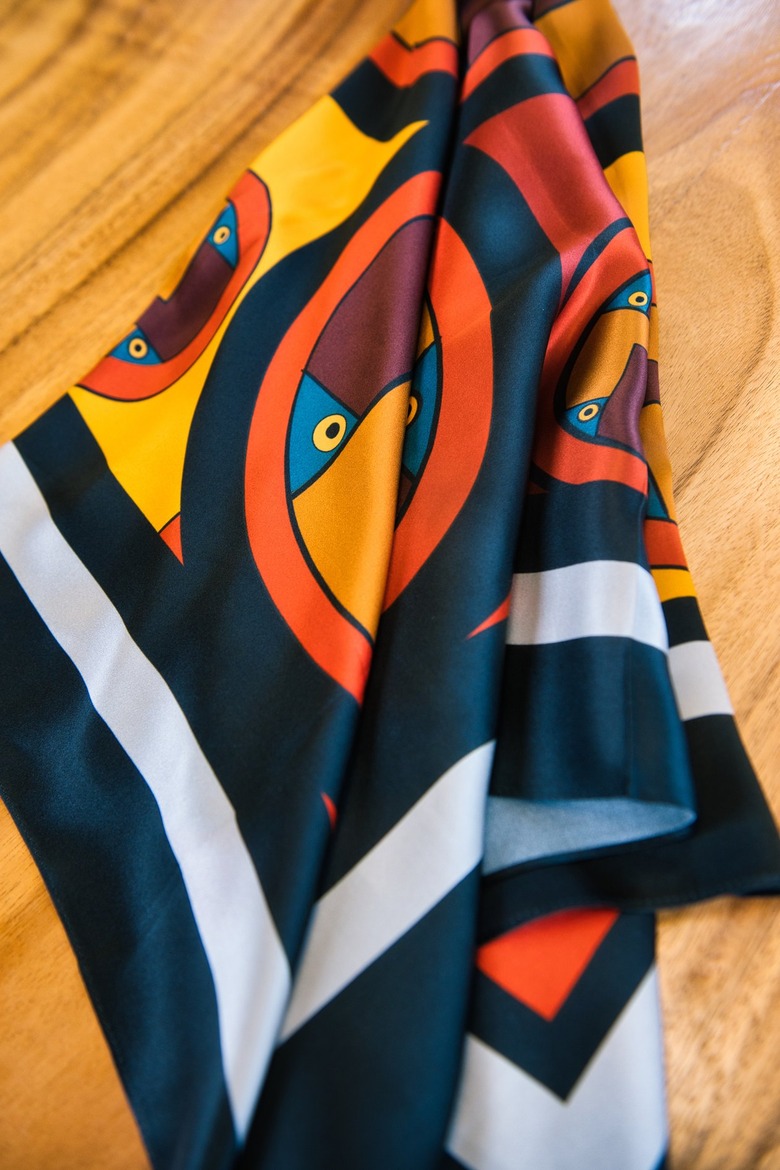Mahota Textiles Has Been Generations Of Indigenous Women In The Making
Back in 2018, Margaret Roach Wheeler, a handweaver of the Chickasaw Nation, one of the Five Civilized Tribes of Oklahoma, approached the tribe's governor, also known as a chief, with an idea. Southeastern United States tribal designs tend to be circular, which can be a challenge to create on a hand loom. That's why Wheeler wanted to move toward a more commercial approach in which textiles can be mass produced, in order to spread awareness of the tribe's traditional creations. This seedling of an idea grew into what we now know as Mahota Textiles: the first textile business to be owned by a North American tribe.
Beyond just creating textiles, Wheeler wanted to honor her heritage and the legacy of Chickasaw women. Plus, her own artistic background as a painter, sculptor, Native historian, and award-winning weaver only helped the cause. The legacy that has been passed down through generations of Indigenous makers inspires the contemporary designs of the brand.
Mahota Textiles resides in Sulphur, a small city about an hour and a half south of Oklahoma City, where business manager and member of the Chickasaw Nation, Bethany McCord, has been handling the organizational side of things since the company was born. The team first consisted of just Wheeler and McCord, before they brought on designer Taloa Underwood.
When thinking of Indigenous art, many of us imagine sharp geometric designs and bright colors, which are often those of Southwestern or Northwestern United States tribes. However, Southeastern patterns are rounder, with more curves and earth tones. In Chickasaw culture, circles represent life, light, growth, and eternity. Arched contours have even been incorporated into the Mahota logo, the rings representing the generations of Indigenous women who led to the birth of the brand, beginning with Wheeler's great-great-grandmother, Mahota.
"There really isn't a specific color palette for Southeastern design," explained McCord to Hunker. "We're sort of the first to create that. We've added more color to our products, but it's definitely different than that Southwest and Pacific Northwest look. It's more to our region where we came from and the colors sort of represent that landscape."
All designs for Mahota are digitally created in house, before being sent to a mill in Pennsylvania that uses large computerized looms to make the 2D images into blankets, pillows, and other textiles. Since the launch of the brand, each year the team has generated a new collection featuring a different designer, including Joanna Underwood Blackburn, Dustin Illetewahke Mater, and Faithlyn Seawright. Each artist has worked to blend inspiration from their ancestors with modern design.
No matter the collection, the works are reflective of Southeastern culture and most of them incorporate Southeastern stories — right down to the thread that holds them together. The blankets are produced with 100% cotton, a material that would have been readily available on the tribe's homeland in Alabama, Mississippi, parts of Tennessee, and Kentucky, before they were forcibly removed from this land in the late 1800s and moved to Oklahoma. In order to hold onto the tradition, the brand has utilized cotton. For its other pieces like pillows and scarves, materials like nylon and silk are used as well.
"All of our designs come from traditional symbols and designs that were used on ancient pottery and [other objects] that have been found throughout the years, and just traditional stories that have been passed on from generation to generation," says McCord.
As the first brand to commercially produce textiles echoing Southeastern heritage, the stories woven into the fabric are crucial for preserving, understanding, and learning about a tribe so rich in history.
"It's important because we're sort of the first to do this, as far as Southeastern culture," explains McCord. "There's a lot known about Southwest and Northwest tribes, or I guess there's more commercial-type products out there, [but] not so much for the Southeastern culture. So, it's an opportunity for us to share our culture and educate others about our culture."
As the company has evolved, Wheeler has drifted into retirement while Underwood has moved on, so the brand is being watered by McCord for the time being. However, the future of Mahota is looking up. Currently, the brand is working with the Chickasaw Retreat and Conference Center, a hotel about 11 miles from Sulphur, to renovate their suites using custom upholstery fabric. Each room will tell a different story of the tribe, featuring its own unique design.
Mahota Textiles can be found in 39 locations across the United States, including the Smithsonian, among other museums. But for those of us who aren't close to a museum, you can see the full repertoire on the Mahota website.
"We're makers of art, of story, the threads that connect the inspiration of our ancestors to all of us in a modern world," reads a quote from Wheeler on the website. "These tell our stories; these create our brand."
